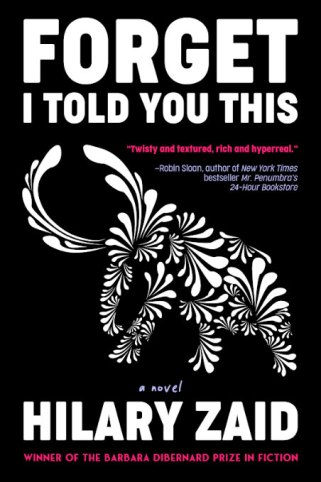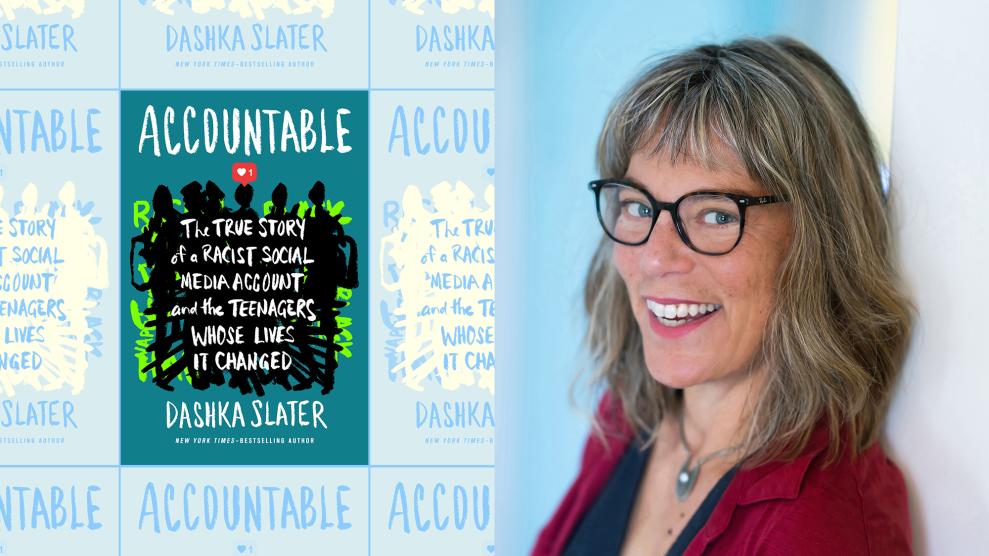
Author photo: Mo Saito
I walked into the kitchen the other day to find my wife writing letters. Just thank-you cards. But still, you know, physical things that require more patience to produce than a text or email or Instagram post—and lasting, too, if one puts any thought into them.
I used to write long letters, not so much to tell friends what I’d been up to as to give them a little conduit into my weird thoughts, observations, and current philosophies. I rarely write letters anymore. That would take time away from consuming “content,” and there’s so much content to consume.

But I kept the handwritten letters friends wrote me long ago. I also still read actual books, and Hilary Zaid’s new novel, Forget I Told You This, got me thinking again about the fleeting vs. the tangible, and the tyranny of the infinite. Like the fact that I used to have hundreds of records, tapes, and CDs to choose from, but now, with Spotify and its endless choices, I find myself listening to the same 10 or 20 artists again and again because I can’t think of anything else. Or the fact that my digital photos accumulate so fast in the cloud that there’s no way I could ever sort through them, let alone take the time to appreciate them.
Okay, yes, fine, I’m a geezer. But I appreciate how Zaid—in addition to delivering a smart, surreal, and sexy thriller with a perfect ending—gets at the tensions between my generation’s love of things we can hold in our hands and the increasingly overwhelming universe of digital media, Big Data, consumer surveillance, and AI—wherein we are fed things more often than we discover them. (Disclosure: Zaid and I know one another; we are volunteer college essay mentors at the same public high school in Oakland, where we both live and where this book takes place.)
Zaid’s protagonist and narrator, Amy, is a middle-aged woman whose former partner, Connie, is no longer around—these circumstances grow clearer as the story progresses. Amy struggles with her identity as a decidedly offline artist in a hyper-digitized world—a practitioner of the ancient craft of calligraphy, deeply invested in the written word and the intricate detailing of letters. Early on, we learn that she has applied for an arts residency at a vast social media and data-harvesting behemoth known as “Q”—an unfortunate coincidence. (Zaid revealed at a recent book-launch event that she’d started writing the novel during “the Obama era,” and refused to change the company’s name on QAnon’s account.)
Amy, in any case, is both curious and ambivalent about Q, a feature that leaves us guessing about what she might do next. Q isn’t her scene, to be sure—she doesn’t really have a scene beyond her family. She also figures these Q people would likely view her as some kind of circus freak, a spectacle, but a Q residency might do wonders for her shaky career, and she probably won’t land it anyway. Right?
Back home, Amy is juggling an empty nest—into which her declining parents have temporarily relocated—and her need for love and companionship. Whatever normalcy she has is shattered at the outset by a strange encounter in the back room of a curio shop in Oakland’s hip Temescal Alley. A man who appears to be a powerful Q insider shows up under duress—it turns out he’s being pursued by some threatening dudes—enlists her to scribe a cryptic letter, and then makes a quick exit. This, followed by a dating-app hookup with a beguiling young woman in an Oakland warehouse, sets Amy off in pursuit of a mystery that will take her deep inside Q and into it’s founder’s secret library, underscoring the tensions I mentioned above.
This isn’t a futuristic story, exactly, but more of a contemporary one as giant companies relentlessly track us online and off, merging far-flung databases and coding algorithms to predict—for good or ill, or both—our behavior, politics, health outcomes, and likely purchases. On the book’s very first page, Amy gets an alert from a florist urging her to buy a bouquet in time for Connie’s birthday. (The company is missing a crucial piece of information: “It was October again. The season of haunting,” Zaid writes.)
I won’t reveal any more, except to say that Forget I Told You This has notes of Robin Sloan’s Mr. Penumbra’s 24-Hour Bookstore, Dave Eggers’ The Circle, and maybe even the TV series Mr. Robot, though with greater depth of character and a more dreamlike quality. For it turns out Amy is face-blind (an actual condition). She cannot recognize people she’s met time and time again, even intimately. It’s a disconcerting state of affairs for a protagonist poking around in places she’s not supposed to be, talking to mailboxes, encountering characters with odd titles and unclear motivations, and perhaps even trying to take down an evil company. But it’s an intriguing one for us readers.














